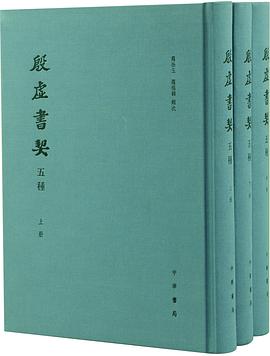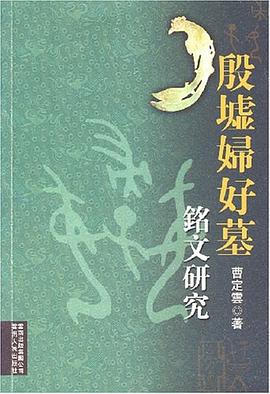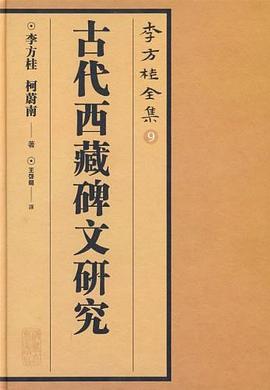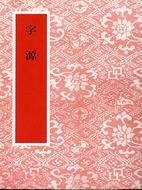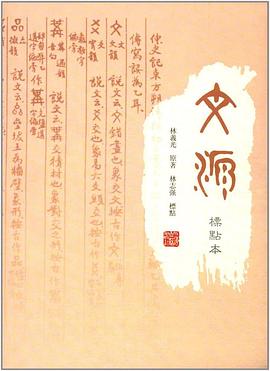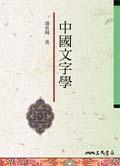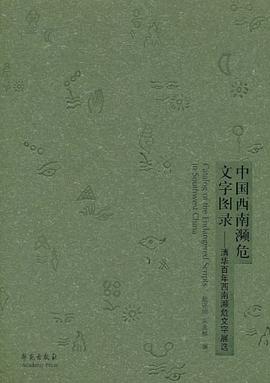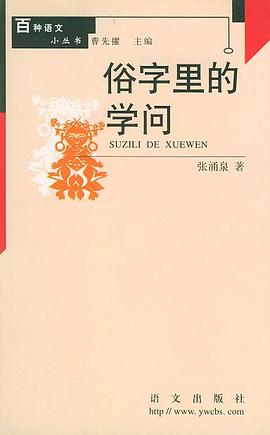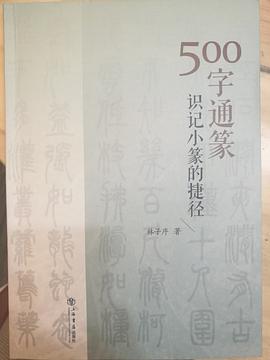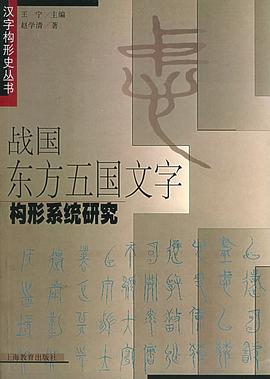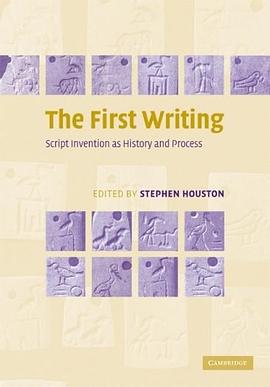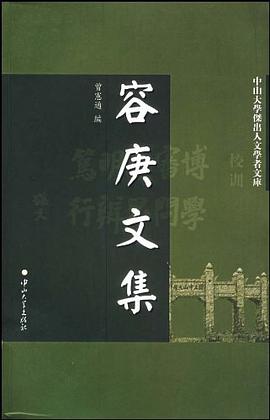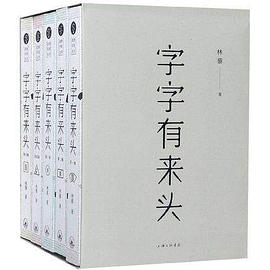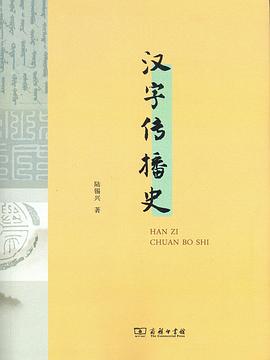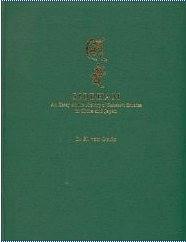
Siddham, An Essay on the History of Sanskrit Studies in China and Japan pdf epub mobi txt 电子书 下载 2026
- 高罗佩
- 梵文
- 语言学
- 梵语
- 文字学
- 悉昙
- Sanskrit
- 计划
- Siddham
- Sanskrit
- Study
- Tradition
- China
- Japan
- Buddhism
- Manuscripts
- EastAsia
- History

具体描述
"The survey presented here, brief though it be, will yet suffice to support the author’s main argument; viz. that while the study of the Sanskrit language never flourished in either China of Japan, the Indian script—in a variety of Brahmi called Siddham—played an important role in Far Eastern Buddhism ever since the introduction of this script into China in the 8 century A.D.
"The Siddham script owed its popularity in China and Japan especially to the rise of the Mantrayana, the esoteric School of the True Word. It was used in particular for writing Dharani and mantra, and for the magic syllables known as Bijaksara or "germ-letters". Since the latter figure largely in the Vajra-dhatu and the Garbha-dhatu, the two magic charts that contain the essence of the teachings of the Mantrayana, these two Mandala are described here in some detail. Although those data are readily available in China and Japan, it is hoped that the description of these two Mandala given in the present study will be of some interest to Buddhologists and archaeologists.
"The attention of the readers in general is drawn to the calligraphic development of the Siddham script in China and Japan; this calligraphic aspect of Sanskrit studies in those two countries is described at some length in this essay and illustrated in the Plates of Volume II. Orientalists are generally agreed that there exist only three living scripts in the world of such intrinsic artistic value as to deserve a place in the realm of fine art, and which are indeed considered on a par with painting in those countries where those scripts are in use."
作者简介
高罗佩(Robert Hans van Gulik,1910-1967) 字笑忘,号芝台,书斋名中和琴室、集义斋、犹存斋、尊明阁、吟月庵等,荷兰汉学家、东方学家、外交家、翻译家、小说家。通晓荷兰文、英文、中文、日文、梵文、藏文、德文、法文、印尼文、马来文、拉丁文、意大利文、西班牙文、古希腊文和阿拉伯文等15种语言文字。
1910年8月9日生于荷兰祖特芬(Zutphen)。父亲高维廉(Willem van Gulik)是驻荷属东印度(今印度尼西亚)荷兰殖民军队的一位军医(陆军中将)。
1915年 -1923年随父母侨居印度尼西亚。高罗佩在爪哇岛度过了他的小学时光。
父亲退役后,高罗佩全家迁回荷兰,定居尼曼根(Nijmegen)附近的毕克村,高罗佩就读于吉姆纳瑟姆(古典式中学)。在吉姆纳瑟姆学生自办的期刊上,高罗佩发表了关于热带生活的回忆文章。
1930年高罗佩在荷兰莱顿(Leiden)大学攻读汉学,1932年以学士论文《如何改良荷属东印度有关华侨的法律》获得中文及日文学士学位和殖民法学士学位;随后赴乌德勒支(Utrecht)大学东方学院深造,以硕士论文《米海岳砚史考》获得东方研究硕士学位;1935年3月7日,高罗佩在乌德勒支大学进行了博士论文答辩,以中、日、印、藏诸民族的“拜马教”考证的博士论文《马头明王诸说源流考》(Hayagriva,The Mantrayanic Aspect of Horse-cult in China and Japan,with an introduction on Horse-cult in India and Tibet)获得博士学位。
1935年毕业后,高罗佩进入荷兰外交部工作,作为助理译员派驻东京。在长达30多年的外交官生涯里,他先后供职于荷兰驻东京、重庆、南京、华盛顿、新德里、贝鲁特、吉隆坡的领事机构。
1942年,太平洋战争爆发,高罗佩与日本驻外使节相交换。在东非和埃及,他被误作间谍而历尽艰险,几个月后他被遣送到新德里。
1943年-1945年在中国重庆担任荷兰大使馆第一秘书。
1943年娶张之洞外孙女水世芳为妻,育有三子一女。与于右任、冯玉祥等社会名流共同参与浙派古琴大师徐元白组织的“天风琴社”,并向徐元白学习古琴,专门从事中国琴艺研究。
战争结束后,高罗佩被召回荷兰并派往海牙。1947年,外交部又派他前往华盛顿。1948年,他被再次派往东京,为期三年。
在新德里的短期工作之后,高罗佩重返荷兰。
1956年-1959年,高罗佩担任荷兰驻黎巴嫩全权代表。
1959年-1962年,高罗佩担任荷兰驻马来西亚大使。
1962年-1965年,高罗佩再次回到荷兰,此间他在行政职务之外又与乌德勒支大学签约讲授“印度以外其他佛教地区的文化史”。
1965年-1967年担任荷兰驻日本大使。
1967年9月24日高罗佩因肺癌在荷兰海牙逝世。在他逝世后,他的全部藏书及遗稿由家属捐出,珍藏于荷兰莱顿大学汉学院中文图书馆专门设立的“高罗佩藏书专室”。
目录信息
读后感
评分
评分
评分
评分
用户评价
《Siddham》这个书名,自带一种古老智慧的韵味,让我对书中内容充满了期待。我一直认为,文字和语言是文化传播的血脉,而梵语,作为印度文明的瑰宝,其在中国的传播和研究,以及其对日本文化的影响,无疑是文化史上的一个重要课题。我希望这本书能够为我描绘出一幅生动的历史画卷,展示出早期中国和日本学者们是如何接触、学习和研究梵语的。我期待能够了解到,在古代交通和通讯不发达的情况下,他们是如何获取宝贵的梵语文献的?在翻译过程中,他们又遇到了哪些语言学和文化上的挑战?我特别希望书中能够深入探讨梵语在佛教传播中的关键作用,以及它如何影响了中国和日本佛教经典的翻译、注释和传播体系。我希望能看到一些具体的语言分析,比如梵语词汇在汉译或日译佛经中的演变,以及这些演变如何反映了不同文化的融合。这本书不仅仅是对学术史的梳理,更是一种对人类求知欲和跨文化交流精神的致敬。我希望它能让我对梵语在东亚的命运有一个更深刻的理解,并认识到文字和思想传播的巨大力量。
评分当我拿起《Siddham》时,一种探究的冲动便油然而生。这本书不仅仅是对“梵学在东亚”这一主题的浅尝辄止,更像是一次深入骨髓的学术挖掘。我一直对古代文明的交流方式非常着迷,特别是当这种交流涉及语言和宗教这样深刻的层面时。梵语,作为印度文化和宗教的母语,它如何在跨越地理和文化鸿沟后,在中国和日本生根发芽,并最终催生出独特的学术传统,这本身就是一个引人入胜的故事。我希望作者能够带领我穿越时空,去亲历那些伟大的翻译家和学者们的工作场景。想象一下,他们在昏暗的油灯下,对着晦涩的梵文手稿,与助手们反复研讨,力求精准传达每一个词语的深意;或者,在寺庙的静谧环境中,他们沉思冥想,试图领悟佛陀思想的精髓,并用最贴切的中国或日本的语言将其表达出来。我期待书中能够详细梳理出各个时期重要的梵语研究机构、学术流派以及代表性的学者,他们的著作、他们的思想碰撞,他们的学术贡献,共同构成了这段精彩的历史画卷。我希望能够从书中了解到,梵语学习和研究是如何在中国和日本的文化土壤中演变和发展的,它如何影响了当时哲学、文学、艺术甚至社会思想的方方面面。这本书的价值,在于它能够连接起现代读者与古老智慧之间的桥梁,让我们重新认识到文化交流的深远意义。
评分《Siddham》这个书名,仿佛是一个古老的咒语,又像是一扇通往未知世界的门,瞬间勾起了我探索的欲望。我对语言在文明交流中的作用始终保持着浓厚的兴趣,而梵语,作为连接印度与东亚的重要桥梁,其在中国的传播和研究,以及对日本的影响,无疑是文化史上一段引人入胜的故事。我期待这本书能为我展现出一幅宏大的历史画卷,描绘出梵语知识如何从印度传播到中国,再从中国影响到日本的完整过程。我希望书中能够详细介绍在这个过程中扮演关键角色的学者、翻译家和僧侣们,了解他们如何克服重重困难,将梵文经典翻译成汉文或日文,并在这个过程中不断丰富和发展东亚的学术传统。我希望能够从书中看到具体的案例分析,比如某个重要的梵语词汇或语法结构在中国和日本的译本中是如何被处理的,这些处理方式又反映了怎样的文化适应和创新。我非常期待能够了解到,梵语研究在不同历史时期在中国和日本所面临的机遇和挑战,以及这些研究如何深刻地影响了当时的哲学、文学、艺术和社会文化。这本书不仅仅是对一段学术史的梳理,更是对人类文明互鉴和知识传播的深刻反思。
评分翻开《Siddham》,我被其沉静的书名所吸引,仿佛闻到了来自远古的书卷气息。我对语言如何承载和传播文化始终充满好奇,而梵语,作为一种古老而充满智慧的语言,它在中国的传播与研究,以及对日本文化的影响,无疑是文明交流史上一个极其重要的篇章。我期待这本书能够深入挖掘这段历史,为我呈现出梵语知识如何从印度传入中国,并在中国经历了怎样的消化、吸收和转化,最终催生出中国特色的佛教文献和学术体系。同样,我也对梵语在日本的接受、研究及其对日本文化产生的深远影响充满了兴趣。我希望书中能够提供详实的史料和严谨的考证,细致地描绘出不同时期、不同地区梵学研究的特点、方法以及那些在历史中闪耀的学者们的事迹。我渴望了解,那些古代的学者们是如何获取珍贵的梵语文献,他们又是如何克服语言上的巨大鸿沟,将深邃的佛法智慧传递给后世的。这本书不仅仅是关于语言的研究,更是关于人类如何跨越文化界限,求知、探索和传承的生动写照。
评分《Siddham》这个书名本身就带着一种神秘的东方色彩,它勾起了我对早期东方文明互动的好奇心。我一直认为,语言是理解一个民族灵魂的关键,而梵语作为一种古老而富有表现力的语言,它在传播过程中所经历的挑战和转变,定然充满了故事。我期待这本书能够为我揭示,梵语是如何在中国的佛教经典翻译中找到自己的位置,又是如何在中国本土文化的影响下,逐渐被吸收、转化,甚至衍生出新的汉译佛经体系。同样,我也对梵语在日本的传播及其研究历史充满兴趣,它如何被日本学者接受、学习、研究,并最终在日本的佛教、文学和艺术领域留下深刻的印记,这是我渴望了解的。我希望能在这本书中看到关于梵语词汇、语法结构在中国和日本文献中出现的具体案例分析,以及这些分析如何揭示了文化融合的细微之处。我更希望作者能够探讨,在不同文化背景下,学者们在翻译和研究梵语时所遇到的独特问题,以及他们是如何创新性地解决这些问题的。这本书不仅仅是关于语言的研究,更是关于跨文化传播和知识传承的深刻探讨。我期待它能提供一个宏观的视角,让我能够理解梵语研究在连接印度、中国和日本这三个重要文明体中所扮演的角色。
评分当我看到《Siddham》的书名时,我脑海中立刻浮现出那些在遥远东方孜孜不倦钻研梵文的学者们的身影。我一直对语言的历史演变及其对文化的影响深感着迷。梵语,作为印度古典文明的载体,其传播和研究的历史,无疑是东西方文化交流中最具代表性的篇章之一。我希望这本书能够深入挖掘中国和日本在梵学研究领域的历史轨迹,从最早的接触和模仿,到独立的研究和创新,再到不同时期学术思潮的兴衰起伏,我都渴望能有一份清晰的梳理。我期待书中能够详细介绍那些在梵学史上留下浓墨重彩的中国和日本学者,他们的生平、他们的学术成就,以及他们对梵语研究的贡献。我想了解,他们是如何获取梵语文献的?他们又遇到了哪些技术上的难题?他们的研究方法又是怎样的?这本书如果能呈现出那些学术争鸣的场景,或者是不同学派之间的思想碰撞,那就更具价值了。我希望它能够展现出,梵语研究不仅仅是文字和语言的分析,更是对思想、哲学和宗教的深刻理解和传承。这本书是对一段历史的追溯,更是对人类文明交流的赞颂。
评分甫一看到《Siddham》的书名,一种对历史深度和文化交融的探求欲便在我心中燃起。我一直着迷于文字穿越时空的旅程,而梵语,作为印度古代文化和宗教的载体,它的东行之旅,无疑是人类文明交流史上一段浓墨重彩的篇章。我希望这本书能带领我深入中国和日本的学术殿堂,去探寻梵语研究的历史脉络。我期待能够了解到,从早期佛教传入中国开始,梵语是如何与汉语言发生碰撞、融合,催生出博大精深的汉译佛经体系的。我同样好奇,在日本,梵语又是如何被接受、研究,并对日本的语言、文学、哲学乃至于宗教实践产生影响的。我希望这本书能够提供详实的史料和严谨的考证,细致地勾勒出不同时期、不同地区梵学研究的特点、方法以及重要的学术成果。我渴望从中看到那些在历史长河中默默耕耘的学者们的身影,了解他们如何克服语言障碍,如何解读晦涩的梵文经典,以及他们对知识的执着追求。这本书如果能深入剖析梵语词汇、语法在不同文化语境下的变异和发展,那将更具学术价值。它不仅是对一段历史的记录,更是对人类文化传承与创新的深刻洞察。
评分《Siddham》这个书名,本身就蕴含着一种神秘的东方韵味,让我对书中内容充满了期待。我一直认为,语言是连接不同文化的重要桥梁,而梵语,作为印度古代文明的母语,它在中国的传播与研究,以及对日本的影响,无疑是文化交流史上的一个重要范例。我希望这本书能够为我展现出一幅波澜壮阔的历史画卷,描绘出梵语知识如何从印度出发,跨越千山万水,在中国落地生根,又如何影响了日本的文化土壤。我期待书中能够深入剖析梵语在中国和日本的学术发展历程,从早期接触、翻译、研究,到后来的创新和演变,都能够有详实的梳理和独到的见解。我希望能够了解到,那些伟大的翻译家和学者们是如何克服语言和文化的障碍,将梵语的智慧融入到中国的哲学、文学和宗教思想中,又如何对日本的文化艺术产生了深远的影响。我尤其期待书中能够包含对一些具体梵语词汇、语法结构在汉译或日译佛经中的处理方式的分析,这些细微之处往往能够揭示出文化融合的精髓。这本书不仅仅是对一段学术史的梳理,更是对人类文明交流与互鉴的深刻洞察。
评分这本书的封面设计就透露着一股沉静而悠远的学术气息,那种泛黄的纸张质感和古朴的字体,仿佛直接把我带回了那个充满探索与求知的时代。初翻开《Siddham》,我被它厚重的篇幅和严谨的排版所吸引,光是目录就足以让人感受到作者在梳理这段历史时的宏大视野和细致入微。我尤其期待书中能够深入剖析“Siddham”这个词本身所蕴含的意义,它不仅仅是一个音节,更是连接印度与东亚文化、语言、宗教传播的关键密码。我希望能在这本书中找到关于早期佛教文本翻译的详尽考证,了解那些将古老梵文智慧带到东方土地的先驱们是如何克服语言障碍、文化隔阂,将那些晦涩难懂的经文一点点消化、转化、并最终融入到中国和日本的文化肌理之中的。想象一下,在没有现代翻译工具的年代,那些学者们是如何凭借对梵语的深厚理解,对中国和日本本土文化的洞察,以及对佛陀教义的虔诚信念,来完成这项伟大的文化桥梁工程的。我很好奇,在那个信息相对闭塞的时代,知识的传播是多么的艰难,又是多么的珍贵。这本书无疑为我们打开了一扇窗,让我们得以窥见那段波澜壮阔的文化交流史,理解文字如何承载思想,思想又如何改变文明。我非常期待书中能够引用大量的原始文献和手稿,通过对这些珍贵资料的解读,来还原那些尘封的学术往事,让我能够更直观地感受到学者们的严谨治学态度和不懈追求。
评分当我第一次看到《Siddham》的书名时,一种对古代语言和文化传播的强烈好奇心便涌上心头。我一直相信,语言是理解一个民族灵魂的钥匙,而梵语,作为印度古典文化和宗教的载体,它在中国的传播和研究,以及对日本文化的影响,无疑是东西方文明交流史上一个极为重要的课题。我期待这本书能够为我深入解析这段历史,展现出梵语知识是如何从印度传入中国,又如何在中国这片土地上生根发芽,最终催生出丰富多彩的汉译佛经体系和学术研究。同时,我也对梵语在日本的传播及其研究的历史充满兴趣,希望能够了解到它如何被日本学者接受、学习、研究,并最终在日本的文化、思想和艺术领域留下深刻的印记。我希望书中能够提供详实的史料和严谨的考证,细致地勾勒出不同时期、不同地区梵学研究的特点、方法以及那些在历史长河中默默耕耘的学者们的事迹。我渴望能够了解到,那些古代的学者们是如何获取珍贵的梵语文献,他们又是如何克服语言和文化的巨大鸿沟,将深邃的佛法智慧传递给后世的。这本书不仅是对一段学术史的记录,更是对人类跨越时空、求知探索的宏大叙事。
评分cnm太牛了
评分cnm太牛了
评分于中日材料搜集甚勤,博雅严谨,令人想见其风采。虽主论点颇有目的论之嫌,导夫先路的成绩不可抹杀。
评分cnm太牛了
评分于中日材料搜集甚勤,博雅严谨,令人想见其风采。虽主论点颇有目的论之嫌,导夫先路的成绩不可抹杀。
相关图书
本站所有内容均为互联网搜索引擎提供的公开搜索信息,本站不存储任何数据与内容,任何内容与数据均与本站无关,如有需要请联系相关搜索引擎包括但不限于百度,google,bing,sogou 等
© 2026 book.quotespace.org All Rights Reserved. 小美书屋 版权所有


